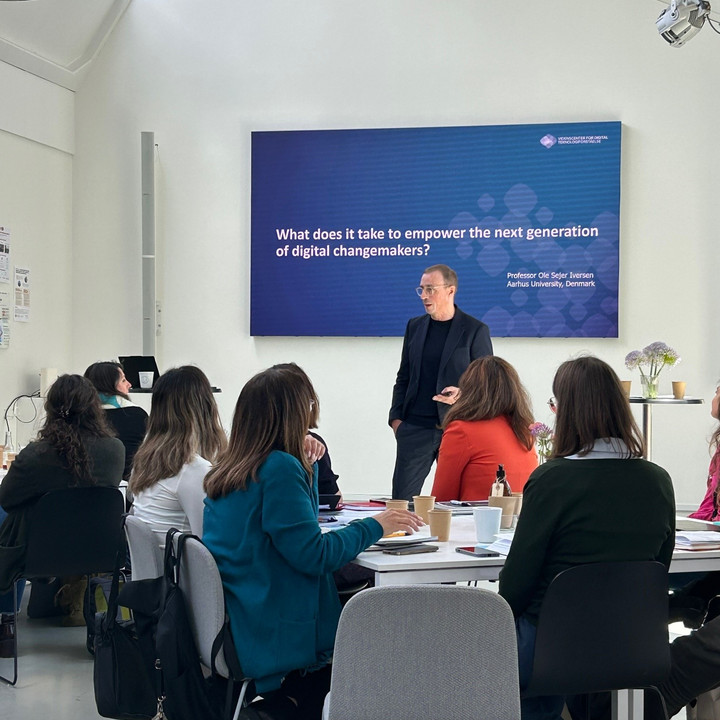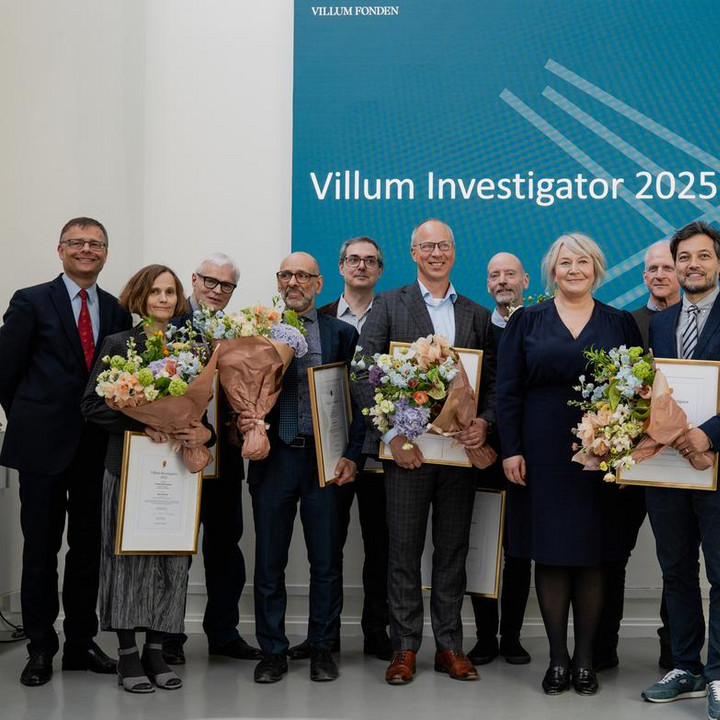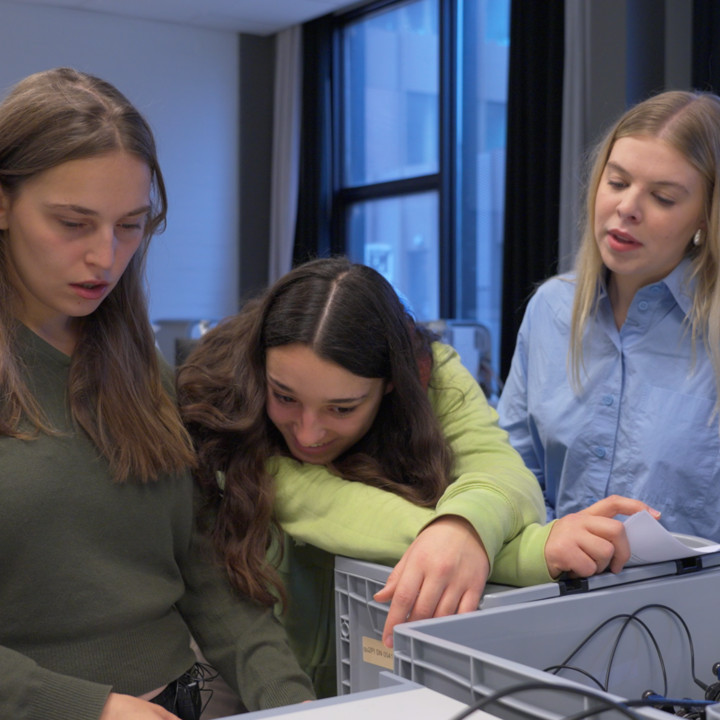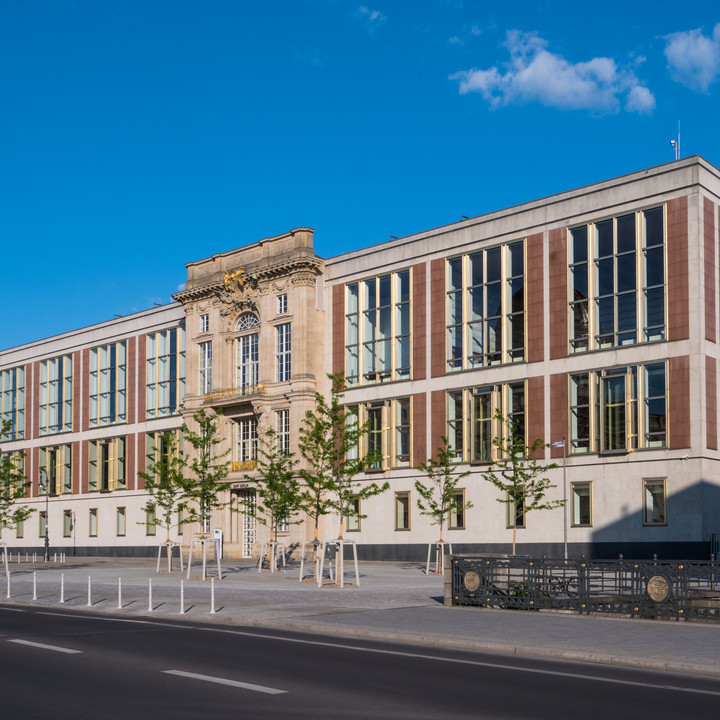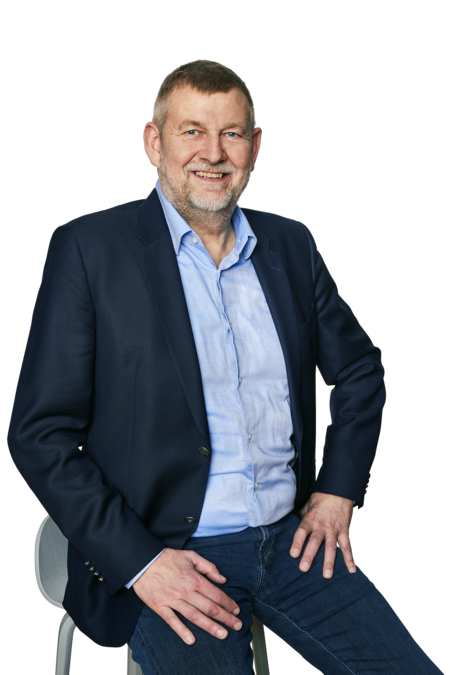Villum Synergy: 15 data-driven research projects

Villum Synergy is Denmark’s largest programme for data-driven interdisciplinary research.
Since its establishment three years ago, the programme has supported 35 research projects with a total of DKK 154 million.
With the Villum Synergy programme, VILLUM FONDEN wants to strengthen data-driven interdisciplinary research. The programme is targeted at researchers from computer science, statistics and applied mathematics, in collaboration with researchers from a wide range of other fields – from technical and natural sciences to the humanities and social sciences.
“Villum Synergy is synonymous with cutting-edge data-driven interdisciplinary research. The research projects are based on data science and are created by researchers from computer science, statistics or applied mathematics in collaboration with researchers from a wide range of other disciplines ranging from chemistry to psychology. The 15 projects receiving this year’s grants are all data-driven, but are very different in terms of topics. Several of them speak in different ways to our focus on climate and sustainability,” says Thomas Bjørnholm, Executive Chief Scientific Officer, VILLUM FONDEN.
VILLUM FONDEN received a total of 36 applications for the programme. Of these, six were applications for large projects in established collaborations while 33 were for initiation projects for beginning new partnerships. The total grant amount is DKK 57 million divided into one large research project and 14 pilot projects.
One of this year’s Synergy projects aims to make data flows between users and third parties more unambiguous and transparent. Another project will investigate the Earth’s element genetic history and determine the rate of climate change millions of years back in time – and in this way perhaps be able to assess the potential of the subsurface to store carbon in the future.
In a third project – the project artiMATE – computer science will ‘fertilise’ the environment when researchers investigate whether greener agriculture can be created by providing the right composition of microbial life in the soil. The project is led by Associate Professor Line Clemmensen from DTU Compute and Senior Researcher Michael Krogh Jensen from DTU Biosustain. Using computer models based on artificial intelligence, the researchers will describe the relationship between satellite images of the Earth’s surface and DNA from the underlying soil layers for thousands of sites on Earth:
This year, VILLUM FONDEN received 36 applications, 15 of which were awarded grants, i.e. the success rate is 42%, which is a lot higher than the grant area’s average success rate of approximately 15%. The number of female applicants has increased from around 12% in 2020 to around 18% in 2022. In 2020 there were three female grantees; this year the number is 13
See the projects that received Synergy 2021 grants and Synergy 2020 grants.
“The grant makes it possible to launch an ambitious and interdisciplinary collaboration. Images and DNA sequences will contain information about crops and microbial life from the locations in question. Using large datasets to describe microbial growth, we will try to identify some of the growth promoters that fungi and bacteria exchange, and which the computer models predict may be relevant to crop growth. We hope to be able to develop completely new computer models for use in global predictions of crop growth in relation to underground microbial life,” says Line Clemmensen, and Michael Krogh Jensen adds:
“By means of a new biotechnological method, we will experimentally investigate some of the relationships that the computer models find between what we see in the satellite images and the life in the soil. In this way, we will try to find the neurotransmitters that the soil fungi and bacteria exchange for the maintenance of microbial life. We expect that both computer models and neurotransmitters can be used to predict crop growth and maintain a rich microbial life for the benefit of greener agriculture.”
On the basis of the recommendation of the programme’s academic committee, VILLUM FONDEN grants a total of DKK 57 million to one large research project and 14 pilot projects:
Full project grant for established research partnership:
Professor Katja Hose, Institut of Computer Science, Aalborg University &
Professor Mads Albertsen, Department for Chemistry and Bioscience, Aalborg University: Illuminating microbial dark matter through data science (DarkScience), DKK 15,5 million.
Initiation projects establishing new research partnerships:
Associate Professor Jan Dimon Bendtsen, Department for Electronic Systems, Aalborg University &
Associate Professor Mads Koustrup Jørgensen, Department for Chemistry and Bioscience, Aalborg University: 3ω sensing in dynamic contexts, DKK 3 million.
Professor Daniel Enrique Lucani Rötter, Department of Electrical and Computer Engineering, Aarhus University &
Associate Professor Klaus Koren, Department of Biology, Aarhus University: WaterKnowledge - Knowledge-driven Digitalisation of Water Environments, DKK 3 million.
Professor Niels Chr. Nielsen, Department of Chemistry, Aarhus University &
Associate Professor Claudia Strauch, Department of Mathematics, Aarhus University: Stochastic optimal control: Designing dynamic nuclear polarization in large open quantum systems, DKK 3 million.
Associate Professor Ute Hahn, Department of Mathematics, Aarhus University &
Associate Professor Jens Vinge Nygaard, Department of Biological and Chemical Engineering - Medical Biotechnology, Aarhus University: Quantifying Cellular Reaction to Geometric Properties of Extracellular Environment, DKK 3 million.
Associate Professor Panagiotis Karras, Department of Computer Science, Aarhus University &
Associate Professor Ramin Aghababaei, Department of Mechanical and Production Engineering - Mechanics and Materials, Aarhus University: Enabling efficient use and recycling of cutting tools using multifidelity optimization (CutMore), DKK 3 million.
Professor Mikael Sejr, Department of Ecoscience, Aarhus University &
Professor Ira Assent, Department of Computer Science, Aarhus University: Connecting the dots; Improving value of an Arctic Observation System through machine learning, DKK 2,9 million.
Professor Anders Dahl, DTU Compute, Technical University of Denmark &
Professor Henrik Birkedal, Department of Chemistry, Aarhus University: Anisotropic Materials in 3D by Geometrically Informed Learning, DKK 3 million.
Professor Rasmus Bjørk, DTU Energy, Technical University of Denmark &
Associate Professor Jes Frellsen, Department of Applied Mathematics and Computer Science, Technical University of Denmark: Physics-aware machine learning, DKK 3 million.
Associate Professor Line Clemmensen, DTU Compute, Technical University of Denmark &
Senior researcher Michael Krogh Jensen, Novo Nordisk Foundation Center for Biosustainability, Technical University of Denmark: artiMATE - artificial neural networks of satellite imagery, fungal metagenomes and high-throughput interaction studies, DKK 2,9 million.
Associate Professor Yiqiu Dong, DTU Compute, Technical University of Denmark &
Associate Professor Mirko Salewski, Department of Psysics, Technical University of Denmark: Tomography of Alpha Particles in Fusion Plasma (TAPP), DKK 2,9 million.
Associate Professor Verdrana Andersen Dahl, DTU Compute, Technical University of Denmark &
Professor Jens Wenzel Andreasen, Department of Energy Conversion and Storage, Technical University of Denmark: Real-time Acquisition and Neural Representatuion of Structural Properties - Renner, DKK 3 million.
Professor Kasper Hornbæk, Department of Computer Science, University of Copenhagen &
Professor Søren Kyllingsbæk, Department of Psychology, University of Copenhagen: Augmenting vision by combining augmented reality with models of visual attention, DKK 3 million.
Professor Klaus Mosegaard, Niels Bohr Institute, University of Copenhagen &
Associate Professor Tais Wittchen Dahl, Section for Geobiology, University of Copenhagen: Constraining rates in Earth’s sedimentary archives from their genetic history, DKK 3 million.
Professor Fabrizio Montesi, Department of Mathematics and Computer Science, University of Southern Denmark &
Professor Claes de Vreese, Digital Democracy Center, University of Southern Denmark: X-IDF: Explainable Internet Data Flows, DKK 3 million.
